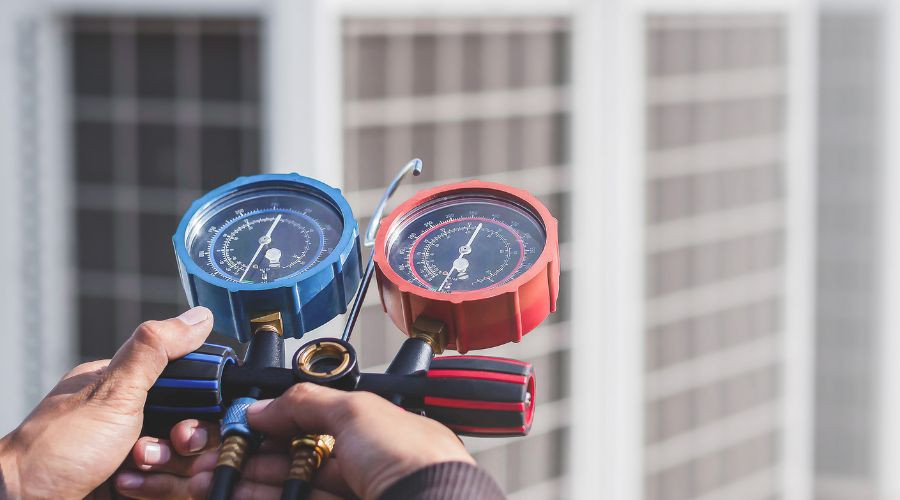How to Tell if the AC Is Leaking Refrigerant and Needs Repair
A refrigerant leak might not seem like a pressing concern until facing a malfunctioning air conditioning system or a warm refrigerator on a hot summer day. These leaks, often subtle and easy to overlook, can lead to significant problems that affect both comfort and finances. Not only do refrigerant leaks reduce system efficiency and drive up energy costs, but they can also pose potential health and environmental risks. Recognizing the warning signs of a refrigerant leak can help catch problems early, prevent costly AC repairs, and maintain optimal performance of cooling systems. This guide explores the telltale indicators that suggest refrigerant loss and what steps to take to address this common yet serious issue.
Frozen Evaporator Coils
Refrigerant leaks manifest when evaporator coils freeze. Under normal operating conditions, the refrigerant absorbs heat from the air passing over the evaporator coils while maintaining a delicate pressure balance. However, when refrigerant levels drop due to a leak, the remaining refrigerant expands too much, causing the temperature to drop below freezing and leading to ice formation on the coils.
This freezing creates a snowball effect. As ice builds up on the coils, it acts as an insulator, further reducing the system's ability to absorb heat from the air. The reduced refrigerant pressure also forces the system to work harder, potentially leading to compressor damage if left unaddressed. While other factors, such as restricted airflow or dirty filters, can also cause frozen evaporator coils, a refrigerant leak is one of the most common and serious underlying issues that require immediate professional attention.
The AC Is Not Cooling Properly
 A refrigerant leak can cause the air conditioning system to work inefficiently, failing to cool the space effectively due to the inability to absorb and transfer heat properly. Refrigerant is essential for heat absorption and release, and when its levels drop due to a leak, warmer air flows from the vents despite the unit running continuously.
A refrigerant leak can cause the air conditioning system to work inefficiently, failing to cool the space effectively due to the inability to absorb and transfer heat properly. Refrigerant is essential for heat absorption and release, and when its levels drop due to a leak, warmer air flows from the vents despite the unit running continuously.
The system will run longer cooling cycles to compensate for and maintain the desired temperature, which will increase power usage, raise utility bills, and strain the system further. This added strain can lead to accelerated wear and tear on vital components and more serious mechanical issues.
Unusual Sounds
 Refrigerant leaks in air conditioning systems can often be detected early by unusual sounds. The most common are hissing or whistling noises which could be caused by pressurized refrigerant escaping through small openings. These sounds may persist even when the system is off due to the continuous leakage of refrigerant under pressure.
Refrigerant leaks in air conditioning systems can often be detected early by unusual sounds. The most common are hissing or whistling noises which could be caused by pressurized refrigerant escaping through small openings. These sounds may persist even when the system is off due to the continuous leakage of refrigerant under pressure.
Bubbling or gurgling noises can also indicate a refrigerant leak, particularly when refrigerant enters larger spaces or air enters the system. Any pressure disruption in the refrigerant's circulation can cause irregular flow and strange sounds. This imbalance can also impact components like the expansion valve and lead to further system malfunctions.
If you hear any unusual noises, it's crucial to have an HVAC technician inspect the system. Refrigerant leaks reduce efficiency and can cause long-term damage to essential components.
About Air Zone Mechanical
Air Zone Mechanical is a family-owned and operated company with over 25 years of experience. They offer HVAC maintenance services in Miami Lakes, FL, and beyond. Call them for expert indoor air quality and air conditioning services in South Florida.



